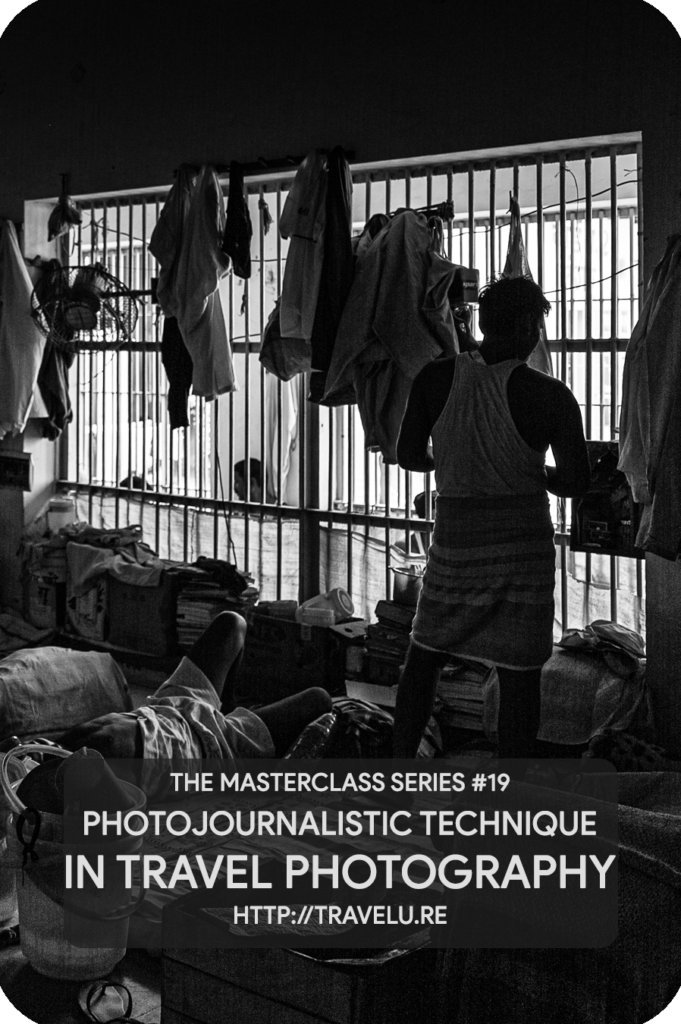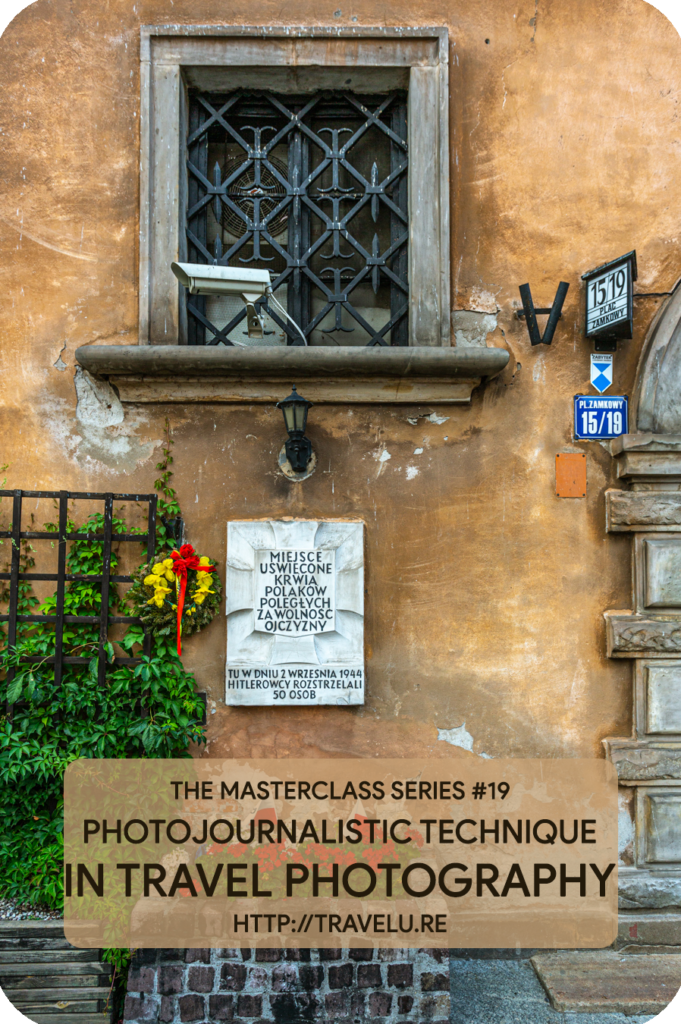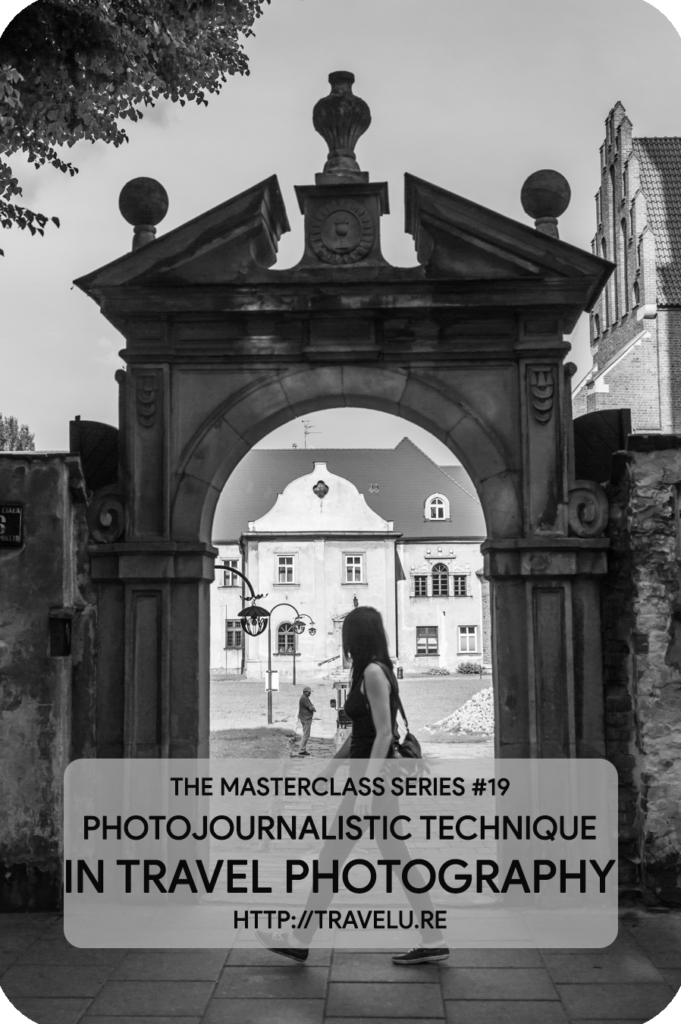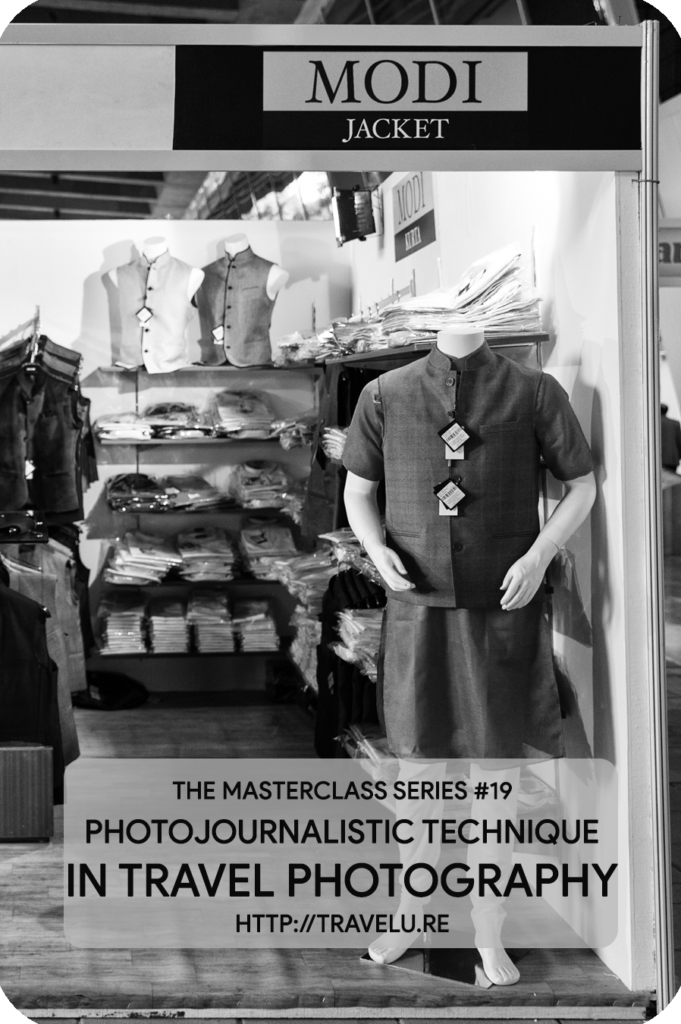The MasterClass Series #19
Photojournalistic Technique in Travel Photography
Equipment
EOS 5D Mark III.
EF 24-70mm f/2.8 L II USM (Shots #1, #2, #3, and #4).
TS-E 24mm f/3.5 L II (Shot #5).
EXIF #1
Karsevak at Golden Temple
Focal length: 28mm
Aperture: f/11
Shutter speed: 1/30
ISO: 400
EXIF #2
Guide in Bhoolbhulayiya (maze)
Focal length: 24mm
Aperture: f/7.1
Shutter speed: 25 seconds
ISO: 2000
EXIF #3
Zydowski Cemetery, Warsaw
Focal length: 59mm
Aperture: f/2.8
Shutter speed: 1/320
ISO: 100
EXIF #4
Inside Tihar Jail
Focal length: 24mm
Aperture: f/2.8
Shutter speed: 1/200
ISO: 200
EXIF #5
Scouts and Guide near Warsaw University
Focal length: 24mm
Aperture: f/16
Shutter speed: 1/320
ISO: 200
Editing
Adobe Lightroom Classic CC
Let’s move from shooting spectacular auroras to adding a definitive aura to images through a technique that’s often overlooked in travel photography – the photojournalistic technique.
The story
As a person who shoots and writes, I bring destination stories to my readers. From broad strokes to details, I use a quiver-full of tricks to tell these stories. But, an oft-ignored technique is making photojournalistic pictures.
Photojournalism came about to include illiterates into the news cycle. It brought news to life by transporting the viewer-reader to where the action was. It had to have drama, action, expression, and context. Above all, it had to remain honest and impartial – telling things as they were. No sugar coating.
Given the raison d’être of photojournalism, we can make powerful use of this technique in travel.
The challenge of bringing the journalistic touch to travel photos
But the origin of the photojournalistic technique gives it a strong association with calamity and disaster. Also, most well-known photojournalistic photographs are black & white. As a result, the biggest challenge to embrace this technique in travel photography is our own sense of aesthetics.
During travel, we attempt to declutter our images and imbue them with vibrancy, symmetry, and beauty. We shudder at the thought of showing a destination with its flaws. So, our subconscious rejects this technique when we shoot travel. It does not even stop to consider the use of the photojournalistic technique in victories, celebrations, and other happy moments.
The shots
A photojournalistic touch tells a powerful story. While it may show some flaws, it provides an emphatic context. It is not necessary every photojournalistic image must disturb. While some may, others will bring out a holistic story without many words. Let’s take a look at e few examples:
Shot #1:
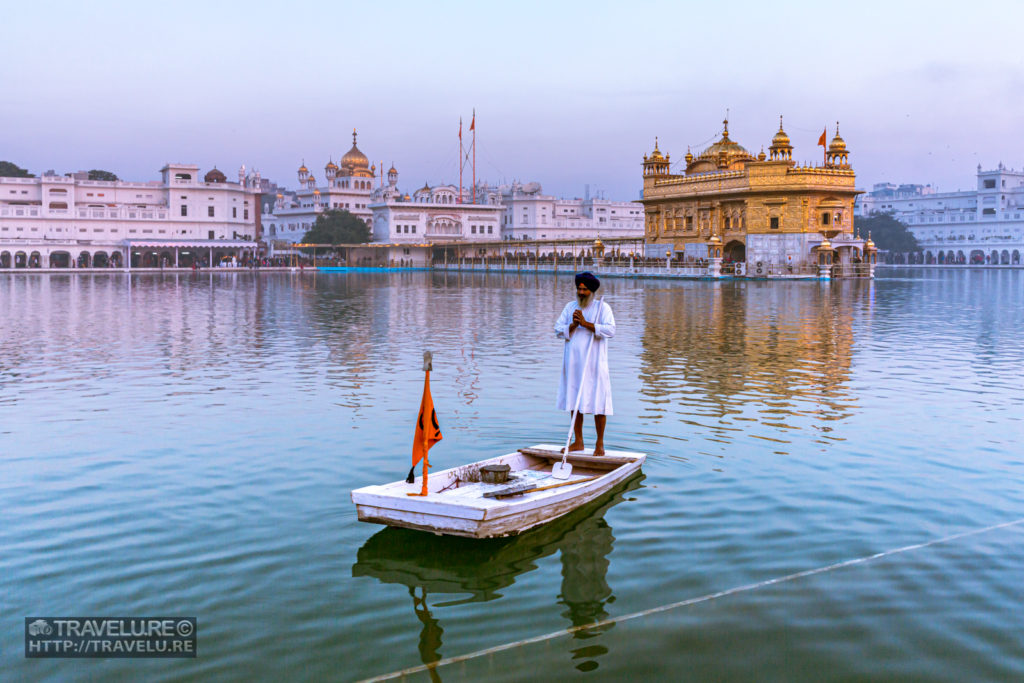
This shot shows a karsevak (someone who offers free services for a religious cause) folding his hands to greet other devotees at the Golden Temple. The serenity of the dawn at a revered place comes out strongly in this shot. It brings out the ambience and provides a strong context to the feelings evoked by this holy place.
Shot #2:
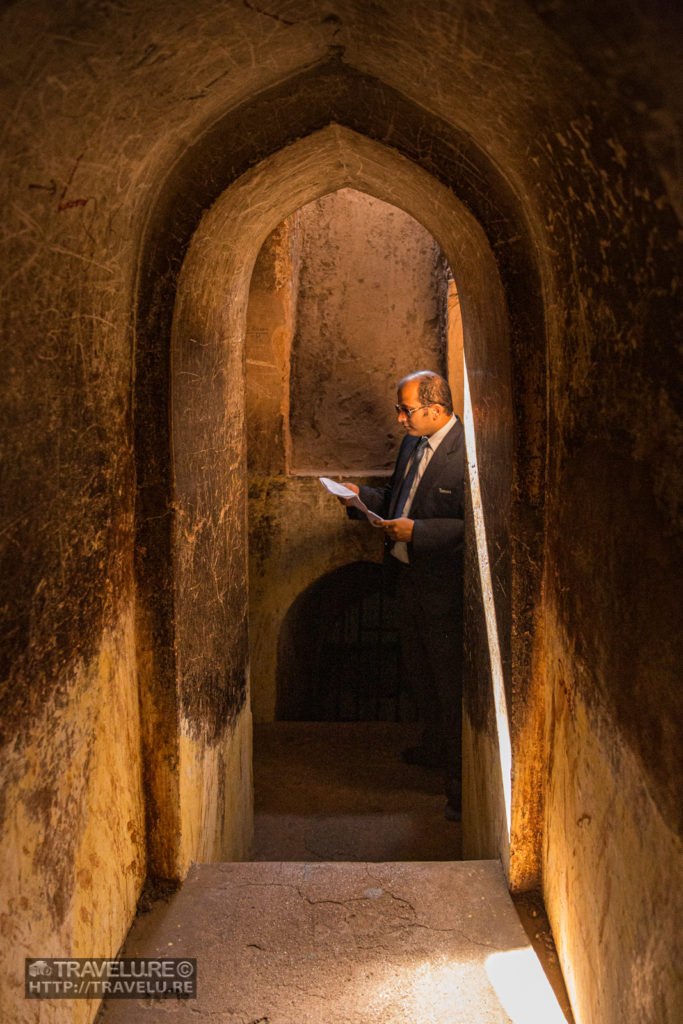
Photographed inside the Bhoolbhulaiya (maze) in Bada Imambara (Big Ceremonial Hall of Shiite Muslims), here is a guide waiting for his group. The unusual juxtaposition of suave and modern over ancient lends drama and an intriguing context.
Shot #3:
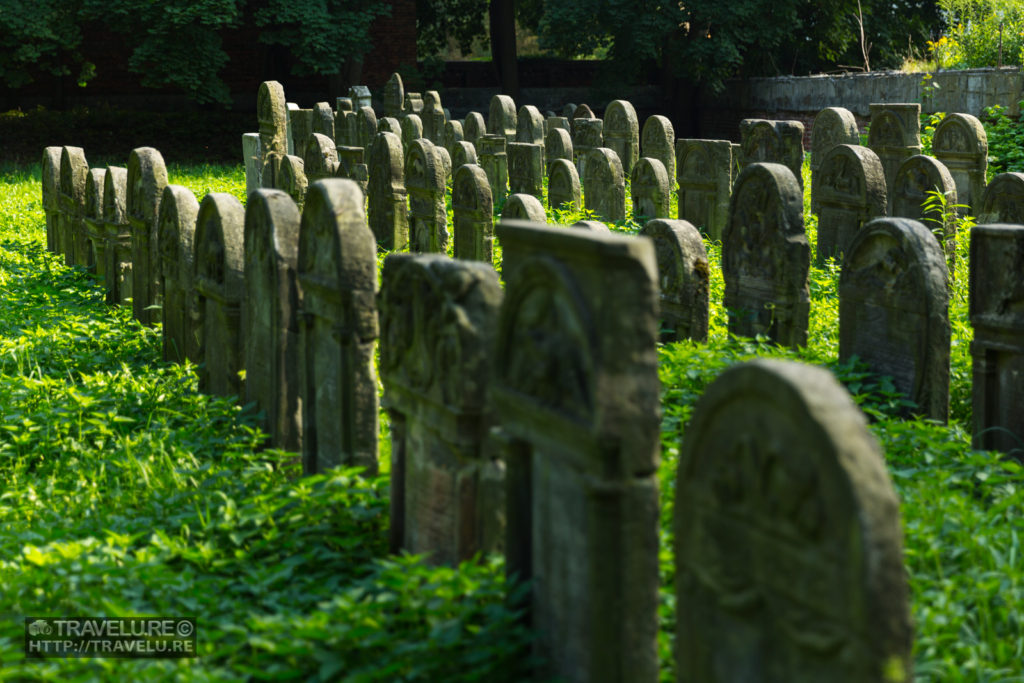
Zydowski Cemetery – A stark reminder of the WW-II Holocaust. This shot makes the point a photojournalistic travel image need not have a human element in it. The moss-covered vintage cemetery in itself is poignant.
Shot #4:
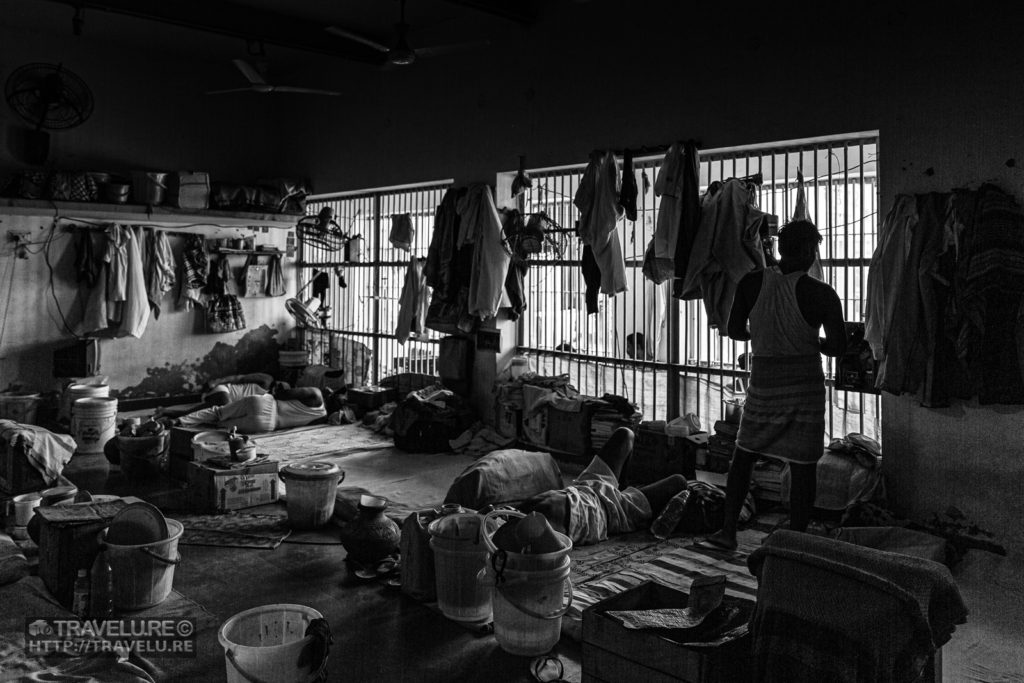
This shot is, in the truest sense, photojournalistic. Shot inside Tihar Jail, it unravels the lifestyle of prisoners in captivity. The darkness within contrasts with the bright outdoors, symbolising their lack of freedom.
Shot #5:
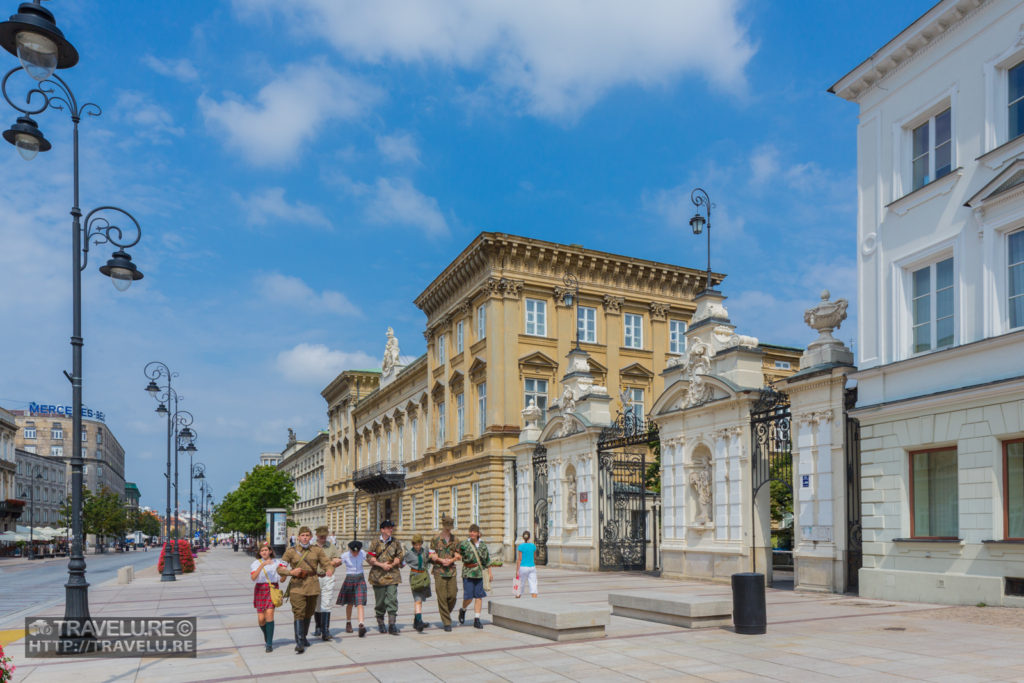
A simplistic-looking shot showing the renaissance architecture of Warsaw University is heavily layered with meaning. The scouts and guides walking hand in hand reflect the happy-go-lucky character of the city – ironic for a city that rose phoenix-like from its ashes after WW-II decimation.

